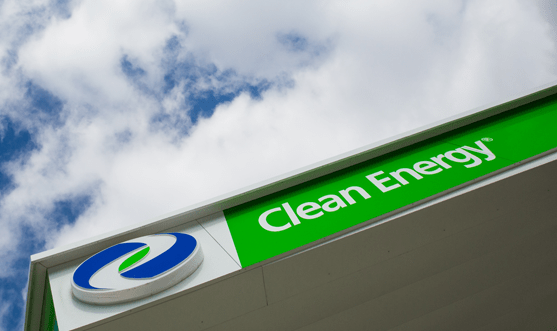Citing the absence of a federal alternative fuels tax credit (AFTC), Clean Energy Fuels Corp. is reporting lower revenues for 2017. However, fuel deliveries saw an uptick for the year.
The company delivered 86.4 million gallons in the fourth quarter of 2017, representing a 2.7% increase from 84.1 million gallons delivered in the fourth quarter of 2016. For the year ended Dec. 31, 2017, the company delivered 351.4 million gallons, which was a 6.8% increase from 329.0 million gallons delivered for the year ended Dec. 31, 2016.
Revenue for the fourth quarter of 2017 was $89.3 million, representing a 12.3% decrease from $101.8 million of revenue for the fourth quarter of 2016. According to the company, this decrease was primarily due to the absence of revenue recognized in 2017 from a federal AFTC and a lower effective price per gallon in 2017.
The lower effective price per gallon was largely attributable to the effects of the company’s sale of certain assets related to the upstream production portion of its renewable natural gas (RNG) business to BP Products North America Inc. in the first quarter of 2017, which has resulted in decreased revenue from the sale of certain tradable credits the company generates by selling compressed natural gas (CNG), liquefied natural gas (CNG) and its Redeem RNG vehicle fuel.
Clean Energy says these decreases were partially offset by an increase in revenue as a result of the increased gallons delivered in the fourth quarter of 2017 compared to the same period in 2016, as well as increased station construction and compressor revenue.
Revenue for 2017 was $341.6 million, a 15.2% decrease from $402.7 million for 2016. Again, according to the company, this decrease was primarily due to the absence of the AFTC in 2017; a lower effective price per gallon in 2017, largely attributable to decreased revenue from sales of certain tradable credits, as discussed above; and lower construction and compressor revenue, partially offset by increased revenue from higher volume in 2017.
Andrew J. Littlefair, Clean Energy’s president and CEO, says, “We had a very productive fourth quarter as we completed a variety of actions addressing underperforming stations and putting in place further cost reductions, as well as completing the combination of our compressor business with Landi Renzo’s SAFE. We believe we are well positioned for 2018 with these actions in place, as well as AFTC revenue for 2017 fuel sales, all of which we will recognize this year. We also see continued volume growth, driven by increased acceptance of our environmentally friendly, cost-effective and proven alternative fuel solutions.”
In February, President Donald Trump signed into law the Bipartisan Budget Act of 2018, a long-term budget agreement that includes extensions of the lapsed tax credits for alternative fuel vehicles and refueling infrastructure retroactively for 2017.







The key for clean energy will be sustained higher diesel prices in 2018 and 2019. If diesel remains cheap Cng and electric trucks will never stand a chance.